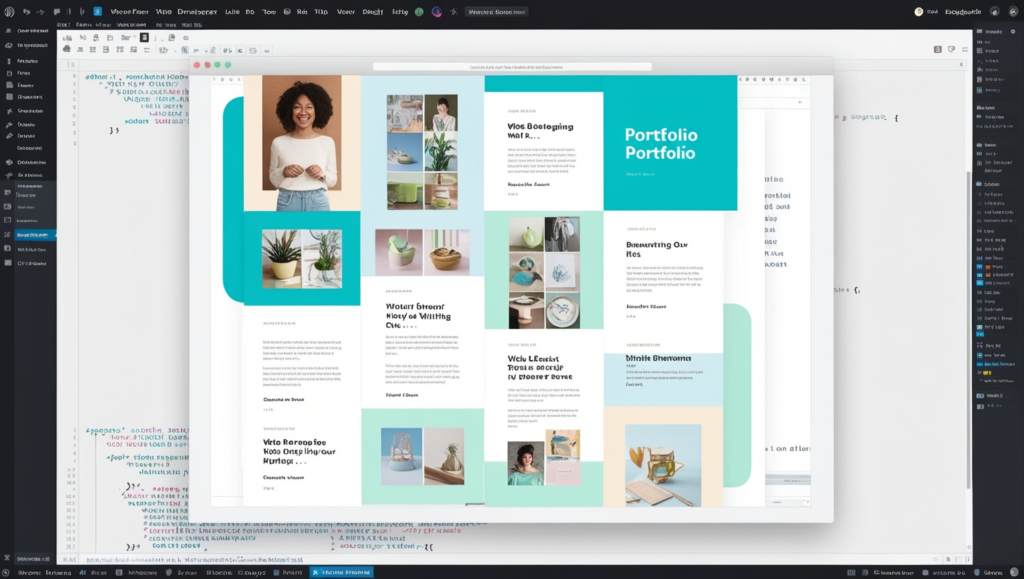This guide delves into ten essential questions every aspiring freelance writer should explore when starting their journey. Whether you’re transitioning from another profession or stepping into the writing world for the first time, these questions will provide a solid foundation. Each topic focuses on practical insights to help you navigate challenges, build confidence, and understand the industry. From finding the right platforms to creating a standout portfolio, this guide covers the core strategies needed to launch a successful freelance writing career.
Breaking into freelance writing can feel overwhelming, but the right knowledge and preparation can make all the difference. This guide simplifies the process into actionable steps that are easy to follow. You’ll learn how to pitch ideas, identify lucrative niches, and set competitive rates without prior experience. It also highlights red flags to avoid scams and tips for time management, ensuring your journey starts on the right track. Whether you’re writing as a side hustle or aiming to make it your full-time profession, these questions will equip you with the tools to succeed in a competitive field.
1. Mastering the Essentials: Skills for Freelance Writing Success
Freelance writing can be an exciting and rewarding career path, but success doesn’t come without effort. Even if you lack prior experience, certain foundational skills can set you apart and give you a strong start in the field. From crafting compelling sentences to meeting client expectations, these essential skills will help you build credibility and sustain long-term success as a freelance writer.
Exceptional Writing Skills
Strong writing is the cornerstone of freelance success. This means having a solid grasp of grammar, punctuation, and sentence structure. Clear and concise writing is essential for communicating ideas effectively and keeping readers engaged. Additionally, freelance writers must master the art of editing and revising. This ensures that every piece of work is polished and professional. Consistent practice and seeking feedback from peers or mentors can help refine your writing style over time. For women looking to explore side hustles, freelance writing offers flexibility and creativity. Check out our Top Side Hustles for Women to discover more options tailored to your goals
Research Prowess
Freelance writers often tackle diverse topics, requiring thorough and accurate research. The ability to find reliable information and integrate it seamlessly into your work is critical. Writers must evaluate sources for credibility, prioritize primary information, and avoid plagiarism at all costs. Researching effectively also involves understanding the target audience. This helps tailor the content to their interests and needs, ensuring it resonates with readers. Developing strong research habits will save time and improve the quality of your work.
Adaptability
Freelance writers must be versatile to succeed in a competitive market. Each client may have different expectations, requiring you to adapt your writing style and tone accordingly. For instance, some projects may call for formal, fact-driven pieces, while others may need a conversational or creative approach. Adaptability also applies to writing for various formats, such as blogs, press releases, or social media content. By learning to pivot between styles and audiences, you can attract more clients and diversify your portfolio.
Meeting Deadlines
Delivering work on time is non-negotiable for freelance writers. Meeting deadlines builds trust with clients and ensures you maintain a professional reputation. To achieve this, it’s essential to establish a workflow that allows for planning, drafting, revising, and finalizing your work efficiently. Unexpected challenges may arise, but proactive communication with clients can prevent issues. Consistently meeting deadlines demonstrates reliability, which is a valuable trait in any freelance professional.
Time Management
Balancing multiple projects while maintaining high-quality work requires excellent time management skills. As a freelance writer, you must structure your workday to maximize productivity and avoid burnout. Setting priorities, breaking tasks into smaller steps, and using tools like calendars or project management apps can help you stay organized. Effective time management also involves setting boundaries. This ensures you allocate sufficient time for personal growth, rest, and professional commitments. Developing this skill early will make juggling assignments less stressful and more manageable.

2. Finding Your First Gigs: Top Platforms for Beginner Freelance Writers
Starting a freelance writing career can feel overwhelming, but the right platforms can simplify the process. Many websites cater specifically to freelance writers, offering opportunities tailored to different skill levels and interests. For beginners, these platforms can provide essential experience, exposure, and connections. Whether you prefer large job boards, content-focused platforms, or direct client outreach, there’s an option to fit your goals.
Freelance Writing Job Boards
Freelance writing job boards are an excellent starting point for beginners. Platforms like Upwork, Fiverr, Guru, and Freelancer.com connect writers with clients from various industries. These websites allow you to create profiles showcasing your skills, portfolio, and rates. Job boards are versatile, offering projects ranging from blog posts to technical writing. Although competition can be high, beginners can stand out by crafting compelling proposals and focusing on smaller, less competitive gigs. Over time, completing successful projects and earning positive reviews can help you build credibility and attract better opportunities.
Content Mills
Content mills, such as Textbroker and ProBlogger, provide a steady stream of assignments, making them ideal for gaining experience. These platforms are beginner-friendly and often require minimal application processes. However, they typically offer lower pay rates compared to other options. For new writers, content mills are a way to practice writing, meet deadlines, and understand client expectations. While they may not be a long-term solution, they can serve as a stepping stone for building confidence and creating portfolio samples.
Specialized Freelance Marketplaces
For writers seeking higher-paying projects, specialized freelance marketplaces are a better fit. Platforms like Contently, Guru, and FlexJobs cater to more professional clientele, including established brands and businesses. These websites often require a stronger portfolio and more experience but provide access to premium opportunities. Many also offer tools to help manage contracts, invoices, and client communication. By presenting yourself professionally and targeting niches that align with your expertise, you can land higher-quality assignments that better reflect your value.
Direct Outreach
Direct outreach is another effective way to secure freelance writing opportunities. Instead of waiting for clients to find you, proactively reach out to businesses, blogs, or publications in your niche. Research potential clients, tailor your pitches to their needs, and highlight your relevant skills. This approach can lead to long-term collaborations and higher-paying assignments. While it requires more effort upfront, direct outreach often yields better results and helps you establish valuable relationships within your niche.
leveraging these platforms and methods, beginners can explore diverse opportunities and gain valuable experience. Whether you start with job boards, content mills, or direct outreach, each approach offers unique advantages. Experiment with different strategies to discover what works best for your skills and career goals.

3. Building Your Portfolio: Strategies for New
Freelance Writers
Starting a freelance writing career without experience might seem intimidating, but it’s entirely possible to build a strong portfolio from scratch. A compelling portfolio showcases your skills, creativity, and ability to deliver value to clients. By creating diverse samples and gaining experience in various ways, you can present yourself as a capable and reliable writer. Here are four effective strategies to help you get started.
Create Your Own Content
One of the easiest ways to build a portfolio is by starting a blog. Choose a niche that interests you or aligns with your career goals, and publish high-quality articles regularly. Blogging allows you to demonstrate your writing style, research skills, and expertise in a specific area. Platforms like WordPress or Medium make it simple to create and share your content. Additionally, focus on producing well-structured, engaging pieces that showcase your unique voice. Over time, your blog can become a valuable showcase for potential clients.
Contribute Through Guest Blogging
Guest blogging is an excellent way to gain visibility and build credibility as a writer. Reach out to blogs or websites that align with your chosen niche and pitch relevant content ideas. Many websites accept guest posts, especially if the content adds value to their audience. Writing for established blogs not only enhances your portfolio but also exposes your work to a broader audience. Ensure your guest posts reflect your best work, as they can serve as strong samples when approaching future clients.
Craft Speculative Writing Samples
Speculative writing involves creating pieces specifically tailored to your desired niche or target clients. For instance, if you want to write about technology, craft an article reviewing a recent product or explaining a tech trend. Speculative samples allow you to control the content, tone, and structure, showcasing your versatility. Focus on producing polished, professional pieces that align with the type of work you want to attract. These samples can demonstrate your ability to deliver quality content, even without prior client experience.
Volunteer to Gain Experience
Offering your writing services to non-profit organizations or online communities can provide valuable experience and portfolio material. Many charities, local groups, or smaller organizations need help creating content but lack the resources to hire professional writers. Volunteer to write newsletters, blog posts, or social media updates. This approach not only helps you build your portfolio but also demonstrates your initiative and willingness to contribute. While unpaid, this work can lead to referrals or even paid opportunities in the future.

4. Choosing Your Niche: Profitable Avenues for
Beginner Freelance Writers
Focusing on a specific niche can set you apart in the competitive freelance writing world. A clear niche helps you attract clients who need your expertise and allows you to build authority in a particular area. Beginners often struggle to decide where to focus, but exploring popular niches can simplify the process. Below are four niches that are ideal for those starting their freelance writing journey.
Content Writing
Content writing is a versatile niche that offers numerous opportunities for beginners. It involves creating blog posts, website copy, email campaigns, and social media content for businesses. Companies constantly need fresh, engaging material to connect with their audience, making this field in high demand. Content writing also allows you to explore various industries, from fashion to technology. Beginners can start by writing blog posts or short articles to develop their skills. With time, you can expand into more complex projects, such as white papers or case studies. Freelance writing is one of the most popular side hustles for women, as it allows for creativity and flexibility. Explore more ideas in our guide on Top Side Hustles for Women.
Article Writing
Article writing focuses on crafting informative and engaging pieces for online publications, magazines, and news websites. This niche is perfect for those who enjoy research and storytelling. Writers in this field often tackle topics like health, lifestyle, or current events. Beginners can start by pitching article ideas to smaller publications or blogs. Developing a strong sense of structure and tone is crucial, as each publication may have specific requirements. Article writing not only builds your portfolio but also improves your ability to deliver well-researched and polished content.
Copywriting
Copywriting involves writing persuasive marketing materials that drive action. This can include product descriptions, website landing pages, and sales letters. It is one of the most lucrative niches in freelance writing, as businesses are willing to pay for copy that boosts sales. Beginners can practice by writing mock campaigns for fictional products or reworking existing marketing materials as samples. Success in this niche requires understanding the principles of persuasion and knowing how to craft compelling calls to action. Over time, building expertise in copywriting can lead to higher-paying opportunities.
Social Media Writing
Social media writing is an engaging and fast-paced niche that appeals to creative writers. It involves managing and creating content for platforms like Facebook, Twitter, and Instagram. Businesses rely on social media to build brand awareness and connect with their audience, making skilled social media writers highly valuable. In this niche, you’ll create posts, captions, and strategies that resonate with followers and encourage interaction. Beginners can start by offering services to small businesses or local brands looking to improve their online presence. Experimenting with different styles and formats will help you refine your skills in this dynamic field.

Setting Your Rates: How Much Should You Charge as a Beginner?
Determining your rates is one of the most critical steps in establishing yourself as a freelance writer. Pricing your work appropriately can be challenging, especially for beginners, but it’s essential to balance fair compensation with competitiveness. Your rates should reflect your skills, the project’s requirements, and industry standards while leaving room for growth as you gain experience. Here are key factors to consider when setting your freelance writing rates, along with tools to help you make informed decisions.
Consider Your Experience Level
Experience plays a significant role in determining your rates. As a beginner, it’s common to start with lower rates than more established writers. This helps you attract clients while you build a portfolio and gain credibility. However, avoid pricing yourself too low, as this can undervalue your work and set unrealistic expectations for future clients. Beginners often start with rates between $0.05 and $0.10 per word, or $15 to $50 per hour, depending on the niche and project type. As you complete projects and receive positive feedback, gradually increase your rates to reflect your growing expertise.
Evaluate Project Scope
The scope of a project significantly impacts how you price your work. Projects that require extensive research, technical knowledge, or a fast turnaround typically command higher rates. For example, writing a 500-word blog post on a general topic may cost less than crafting a 2,000-word white paper requiring in-depth research and data analysis. Before quoting a price, assess the project’s complexity, length, and expected deliverables. Factor in the time you’ll spend on revisions and communication with the client. By accounting for all aspects of the project, you can set rates that reflect the effort and time required.
Research Industry Standards
Understanding industry standards is crucial when setting your rates. Rates can vary widely depending on your niche, location, and target market. For example, content writing for blogs may pay less than technical writing or copywriting for marketing campaigns. Beginners in the content writing space may earn between $20 and $75 per article, while entry-level copywriters might charge $50 to $200 for short landing pages. Research resources like the Freelancer’s Union Rate Calculator or surveys from organizations such as The American Writers & Artists Institute (AWAI). These tools provide a clear picture of what writers in similar niches charge, helping you position yourself competitively.
Account for Client Budgets
When negotiating rates, it’s important to consider the client’s budget. Be prepared to adjust your pricing slightly to meet their needs, but don’t compromise on fair compensation. For example, if a client offers a lower budget, you could reduce the project’s scope or propose a shorter word count to make it feasible. Flexibility can help you secure clients, especially when starting out. However, ensure that the agreed-upon rate reflects the value and effort you bring to the project. Consistently undervaluing your work can lead to burnout and limit your earning potential.
Value Your Expertise and Growth
While external factors like client budgets and industry norms influence your rates, your pricing should ultimately reflect the value you offer. Consider the unique skills, knowledge, and perspective you bring to a project. Writers who specialize in high-demand niches or have technical expertise can often charge premium rates. As you grow in your career, regularly evaluate and adjust your pricing. Clients who recognize your value will be willing to pay more for quality and reliability, allowing you to focus on projects that align with your goals.
Utilize Tools and Resources
Setting rates can feel overwhelming, but several resources can simplify the process. The Freelancer’s Union Rate Calculator helps you estimate rates based on your expenses, desired income, and hours worked. Similarly, organizations like AWAI offer guidance and surveys detailing average rates for different types of writing projects. These tools give you a starting point to determine pricing while ensuring your rates align with industry expectations. Take advantage of these resources to refine your strategy and build confidence in your pricing decisions.
In conclusion, setting your freelance writing rates requires a thoughtful approach that balances your experience, project scope, industry standards, and client budgets. As a beginner, starting with competitive but fair pricing allows you to build a portfolio and establish credibility. Over time, as you gain expertise and deliver quality work, you can confidently adjust your rates to reflect your growing value. Leveraging tools like the Freelancer’s Union Rate Calculator and AWAI’s surveys can provide helpful benchmarks, ensuring your pricing aligns with market expectations.
Ultimately, your rates should not only compensate you fairly but also sustain and motivate you as you grow in your career. By valuing your skills and staying informed about industry trends, you can position yourself for success and attract clients who appreciate the quality of your work.

1 thought on “Freelance Writing Opportunities For Beginners”